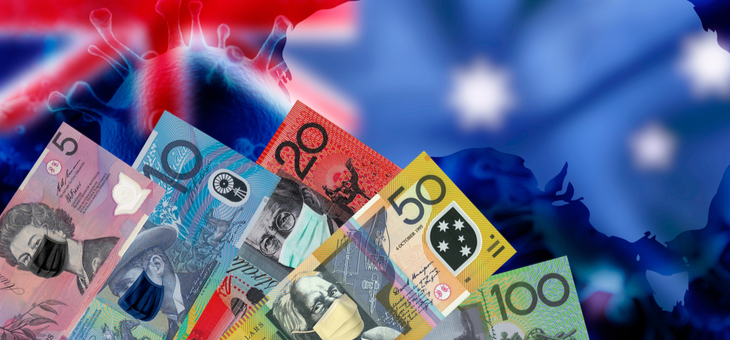While the financial impact of COVID-19 has been evident for many, the latest Australian Bureau of Statistics (ABS) figures paint a picture of exactly how much the crisis is starting to bite.
In May, the main use of government stimulus packages was to add to savings (29 per cent), but this changed drastically in the June figures, with more of the money going to pay regular household bills (32 per cent).
The June ABS figures also showed that 35 per cent of Australians had received a personal stimulus payment of some type from the government in response to COVID-19 by June.
People who were employed and a received a stimulus payment were three times as likely to use it to pay mortgages or rent than those not working or not in the labour force (27 per cent compared to 8 per cent). Similarly, those who were employed were also more likely to pay household bills with their payment (55 per cent compared to 38 per cent).
The ABS figures from its COVID-19 survey on the household impacts of the virus were last taken before the second wave in Victoria had fully started to escalate, but they still showed evidence of differing levels of concern around the country.
In June, fewer people reported feeling concerned about their personal health due to COVID-19 than in May (54 per cent compared to 62 per cent), although Australians aged 65 and over were more likely to be concerned than those aged 18 to 64 (65 per cent compared to 51 per cent).
Three in five Victorians, though, reported feeling concerned about the pandemic in June, with people living in Queensland having the least concern (41 per cent).
The largest change in levels of concern was in New South Wales, where the proportion of those reporting feelings of concern fell from 67 per cent in May to 53 per cent in June.
Half (49 per cent) of people who self-reported being in excellent or very good health were concerned about COVID-19 impacting their health, compared to two in three (67 per cent) who assessed their health to be fair or poor. Similarly, half (49 per cent) of people without any long-term health conditions were concerned about their personal health, compared to three in five (58 per cent) people with a long-term health condition.
The survey also asked respondents if, in the previous four weeks, they had washed their hands and touched their face more, less or about the same due to the spread of COVID-19.
Five in six (84 per cent) people surveyed in May reported washing their hands or using sanitiser more than usual in response to the spread of COVID-19.
In comparison, this rate dropped to three in four Australians (76 per cent) in June. Similarly, the proportion of Australians who reported touching their face less due to the spread of COVID-19 dropped from 43 per cent in May to 36 per cent in June.
In June, four in five (80 per cent) Tasmanians reported washing their hands more, which was the highest rate across the states and territories.
The state that reported the highest proportion of people touching their face less in response to COVID-19 was Victoria, with two in five (41 per cent) people reporting this change in their behaviour.
Conversely, the lowest proportions of these behaviours were reported in South Australia, with 68 per cent washing their hands more than usual and one quarter (26 per cent) of South Australians touching their face less frequently.
The survey also provided good news on the flu vaccination front.
By June, more than half (54 per cent) of the country had received a flu vaccination.
One in three (29 per cent) Australians who had not had a flu vaccination by the time of the survey in June reported that they intended to have one this year.
How have you spent your government stimulus money? Have you been able to add it to savings or were you forced to spend it on household bills?
If you enjoy our content, don’t keep it to yourself. Share our free eNews with your friends and encourage them to sign up.
Related articles:
https://www.yourlifechoices.com.au/health/covid19/410-species-at-risk-of-covid19
https://www.yourlifechoices.com.au/health/wellbeing/the-search-for-love-in-lockdown
https://www.yourlifechoices.com.au/travel/news/queensland-to-stay-closed

